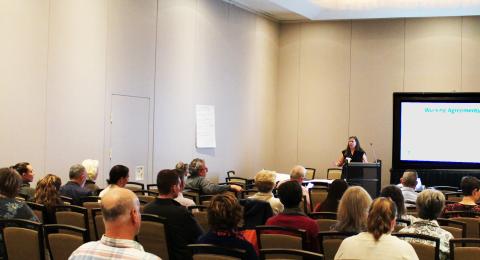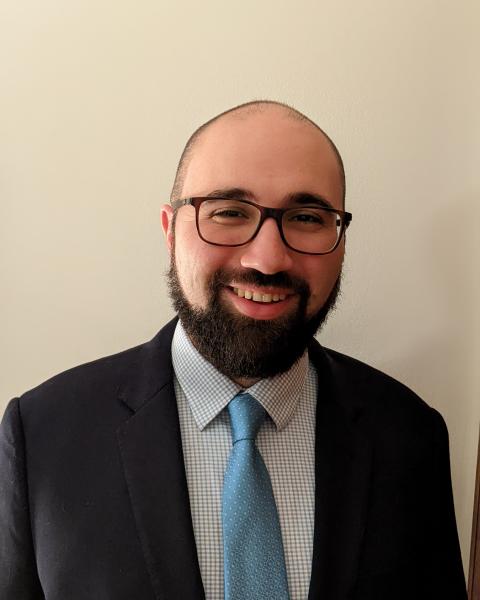Crafting Creative Solutions Through Conflict: Insights from the NHMA Conference
On October 30 and 31, UNH Extension Community & Economic Development field specialists Nate Bernitz, Rebecca Levy, and Sue Cagle attended the annual New Hampshire Municipal Association (NHMA) conference. Beyond the educational sessions and valuable networking opportunities, the team led a well-attended session titled "Crafting Creative Solutions Through Conflict." This interactive workshop highlighted how leaning into constructive conflict can foster trust and spark creative, community-driven solutions.
Reflecting on Healthy Conflict
Participants were challenged to reflect on several key questions about healthy conflict:
- What are the benefits of healthy conflict?
- What does healthy conflict look like?
- Does the appearance of healthy conflict change in different settings?
- What factors contribute to healthy conflict?
At the municipal level, conflict often arises between members of the public and municipal staff or elected officials. When public trust is low, conflict can ensue. If handled constructively, this conflict and its resolution can help build public trust. Conversely, if not handled well, it can damage public trust.
Best Practices for Healthy Conflict
The session provided tools and strategies for engaging in healthy and constructive conflict within communities. These best practices rely on two approaches: planning ahead and managing conflict in the moment.
Planning Ahead
Planning ahead involves developing an understanding of the relevant history within the community, including individual, group, and cultural contexts. It also requires understanding how public officials interact and process information.
For specific engagements, such as meetings and events, consider the following guiding questions:
- Is the physical space safe, comfortable, and accessible?
- Is the room set up to facilitate productive dialogue?
- Does the space create power and status differentials, such as officials being physically elevated or having more comfortable seating than public participants?
Establishing ground rules or a working agreement is crucial. Engagement is more inclusive if participants can interact in various ways, such as verbally, through texting, or using post it notes. Engaging stakeholders in developing processes and setting the agenda can result in more meaningful participation because those participating are included in the process from the beginning. Additionally, it is important to ensure that the goals of the engagement are understood by those being engaged. Participants should know in what ways their feedback will be incorporated, and if or how it will influence a decision.

Managing Conflict in the Moment
Effectively managing conflict in the moment is challenging, even for seasoned facilitators. If a conversation is expected to be emotionally charged, having an experienced facilitator or two can be valuable. When experienced facilitators are not available, self-awareness is critical for those stepping into the facilitator role. Facilitators deeply invested in the discussion's substance and outcomes may find this more challenging.
Facilitating a conversation with conflict requires active listening, continual adjustments, and a willingness to revisit the working agreement and session goals. Highlighting the value and importance of the engagement process is essential, especially when emotions run high. Sometimes, taking a well-timed break can help de-escalate tensions.
Workshopping Conflict Resolution Strategies
Towards the end of the session, participants were split into small groups to discuss situations where they experience conflict. They considered:
- What are your goals for engaging others to resolve conflict?
- What factors influence your goals for public engagement?
- Which tools might you apply, and when, to help manage or embrace conflict?
Final Takeaways
Constructive conflict leads to creative solutions through a process that brings in different perspectives, tests and challenges assumptions, identifies potential challenges and barriers, generates ideas and options, and builds trust, commitment, and collective ownership for community-driven solutions.
By approaching conflict with curiosity, fostering a culture of trust instead of competition, and focusing on developing community-driven solutions, crafting creative solutions through conflict becomes a likely outcome.
Learn more
Why, What and How of Community Outreach and Engagement
Understanding Public Trust at the Local Level
Tools for Community Engagement

